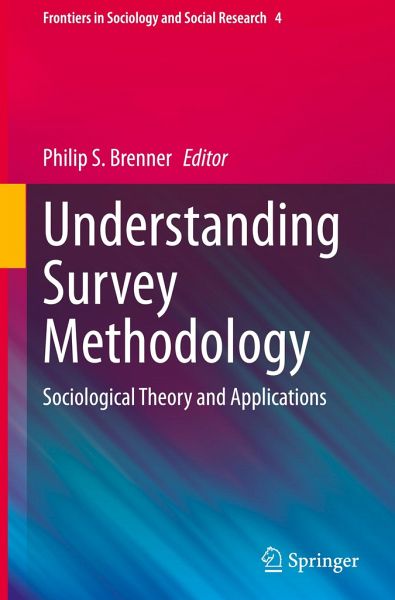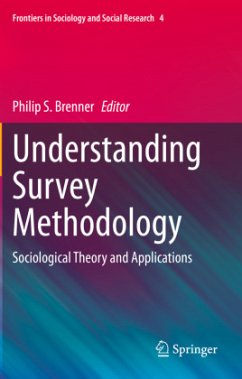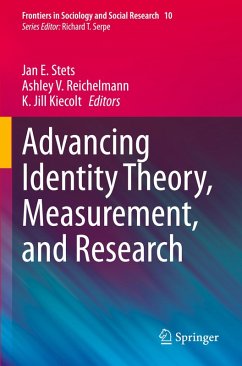
Understanding Survey Methodology
Sociological Theory and Applications
Herausgegeben: Brenner, Philip S.

PAYBACK Punkte
49 °P sammeln!
This volume ambitiously applies sociological theory to create an understanding of aspects of survey methodology. It focuses on the interplay between sociology and survey methodology: what sociological theory and approaches can offer to survey research and vice versa. The volume starts with a focus on direct connections between sociological theories and their applications in survey research. It further presents cutting-edge, original research that applies the "sociological imagination" to substantive concerns important to sociologists, survey methodologists, and social scientists and includes i...
This volume ambitiously applies sociological theory to create an understanding of aspects of survey methodology. It focuses on the interplay between sociology and survey methodology: what sociological theory and approaches can offer to survey research and vice versa. The volume starts with a focus on direct connections between sociological theories and their applications in survey research. It further presents cutting-edge, original research that applies the "sociological imagination" to substantive concerns important to sociologists, survey methodologists, and social scientists and includes issues such as health, immigration, race/ethnicity, gender and sexuality, and criminal justice.














